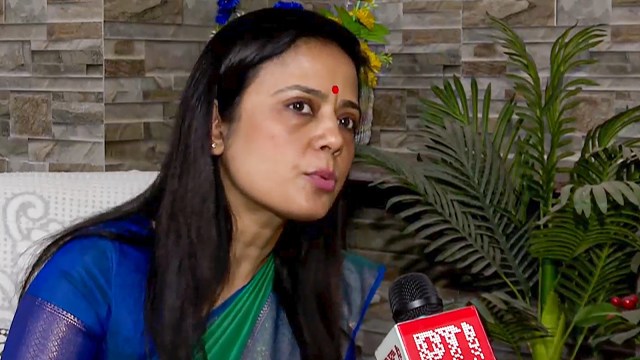
The Ethics Committee of the Lok Sabha investigated the cash-for-query allegations against Mahua Moitra, Trinamool Congress MP from Bengal, and reportedly recommended her expulsion in their final report. This political storm started on October 15 when Nishikant Dubey, a BJP MP, addressed a letter to the Lok Sabha Speaker, accusing Moitra of accepting bribes from businessman Darshan Hiranandani in exchange for raising parliamentary questions. He called this a resurgence of the infamous 2005 “cash for query” scandal. Dubey’s complaint is grounded in documents received from Jai Anant Dehadrai, Moitra’s former partner.
What is intriguing in this case is Dubey’s request for the formation of an inquiry committee while alleging a breach of privilege by Moitra. Normally, matters related to breach of privilege are referred to the Committee of Privileges. So why is this case being probed by the Committee on Ethics? The choice of committees led to confusion in 2005 as well.
In 2005, 11 MPs (six from BJP, three from BSP, and one each from RJD and Congress) were caught taking money for posing parliamentary questions. Ten MPs were from Lok Sabha and one from Rajya Sabha. Lok Sabha Speaker sent the matter to an inquiry committee, while Rajya Sabha referred it to the Ethics Committee, both recommending expulsion. Vijay Kumar Malhotra of BJP, a member of the Inquiry Committee, dissented, arguing that the Privileges Committee would have ensured a fairer hearing. He was supported by the BJP and allies, who walked out during suspension proceedings. In Rajya Sabha, Arun Jaitley questioned the Ethics Committee’s authority to recommend the expulsion of members.
Setting aside political motivations, objections to committee selection are foreseeable due to the blurred lines between what constitutes privileges and misconduct. This confusion persists in Moitra’s case. For example, bribery could trigger privilege proceedings, as per the Supreme Court’s ruling in PV Narasimha Rao’s case (1998). However, in the 2005 “cash for query” scandal, bribery was categorised as misconduct by the inquiry committee.
This terminology-related confusion was acknowledged by the Committee of Privileges of the Eleventh Lok Sabha. After studying the subject comprehensively and drawing from the practices in other countries, they recommended that privileges and ethics are interconnected and should be dealt with by a single committee — the Committee on Ethics and Privileges. The Eleventh Lok Sabha dissolved before the committee’s recommendations could be accepted. In the Thirteenth Lok Sabha, the Committee on Privileges revisited these recommendations. They suggested establishing a separate ethics committee without delving into the merits of the issue, merely to align the procedures of both Houses. Rajya Sabha had already established a Committee on Ethics.
In Moitra’s case, the procedure for raising a point of privilege likely played a pivotal role in committee selection. Only members and the Speaker of the House can raise a point of privilege. In this instance, Dubey’s complaint against Moitra is solely based on the affidavit filed by Dehadrai, who is not a Member of Parliament. Consequently, the Privileges Committee is beyond reach due to the absence of an MP complainant.
The ongoing case demands an assessment of Hiranandani’s conduct, alongside Moitra’s. Hiranandani has submitted an affidavit to the Ethics Committee, confessing to framing questions targeting Adani and offering favours to Moitra. Offering bribes is as much a breach of Parliamentary Privileges as accepting them, as observed by the Supreme Court in PV Narasimha Rao. Notably, the Ethics Committee can only investigate misconduct by parliamentary members, while the Privileges Committee is vested with the authority to penalise non-members. Moitra’s case justifies the Privileges Committee’s involvement to scrutinise Hiranandani’s alleged act of bribing an MP.
So far, Hiranandani has not been summoned by the Ethics Committee in Moitra’s case, reportedly because he is a UAE citizen. Interestingly, the Rajya Sabha’s Privileges Committee faced the question of its jurisdiction over foreign nationals in 1983 and sought the Attorney-General’s advice. The opinion rendered stated that Parliament can exercise jurisdiction over a foreign national for an act committed within the country. If the individual voluntarily agrees to participate in privilege proceedings, no complications arise. However, if the person is unwilling to cooperate, proceedings can take place when the individual is in the country.
Moitra’s case has shone the spotlight again on the complexities surrounding parliamentary committees on privileges, ethics, and ad hoc committees. There is a strong possibility that there will be a repetition of these events in the future. Therefore, Parliament should revisit the suggestion made in the Eleventh Lok Sabha’s Committee of Privileges to let a single committee hear matters related to ethics and privileges. There is a need for a well-defined framework regarding what constitutes privileges and misconduct, and what is the line of demarcation between them. While the Ethics Committee examines Moitra’s conduct, the involvement of the Privileges Committee is warranted to probe Hiranandani’s alleged act of bribing an MP.
The writer is research associate, Mercatus Centre, George Mason University